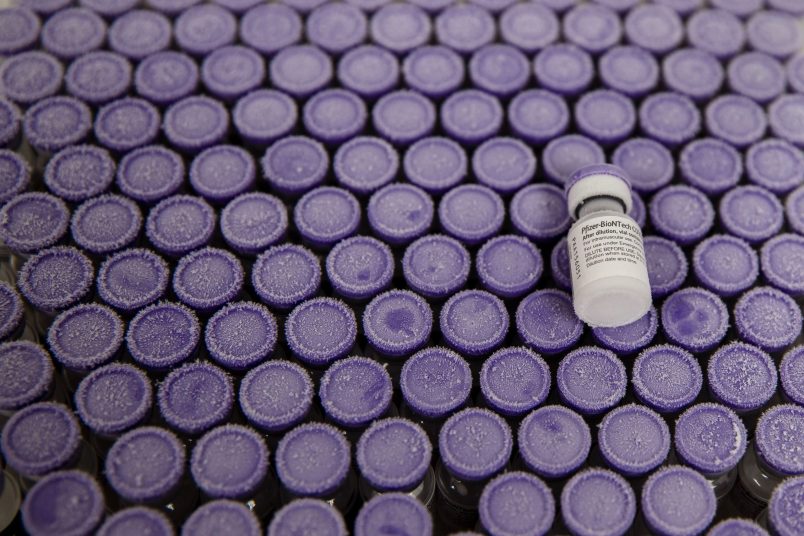A simply astonishing confluence of events today in Israel – one that at least temporarily has led Pfizer to refuse to deliver the latest shipment of its COVID vaccine to the country.
After a number of delays, a prosecutor began his opening statement today in the corruption trial of Prime Minister Benjamin Netanyahu. Netanyahu was in court today, with the jarring images you would expect from such a moment going out over the news wires. Meanwhile, party leaders are meeting today with Israeli President Reuven Rivlin to formally recommend which party leader should be given the first opportunity to build a government after the inclusive results of last month’s election.
Netanyahu’s future hangs in the balance in both proceedings, in one legally, in another politically. As has been the case for the last two-plus years, with four successive elections, the corruption case and Netanyahu’s continuance in office are umbilically intertwined.
The Pfizer vaccine issue is part of that same Gordian Knot thicket at the center of the destabilizing political crisis. According to The Jerusalem Post (which is thus far the only English language report of this), Israeli Army Radio is reporting that Pfizer has halted the latest shipment of 700,000 doses of the COVID vaccine because Israel still hasn’t paid for the last shipment of 1.5 million doses. Pfizer reportedly said the situation was akin to something from a ‘banana republic’.
The issue is the paralysis of the government and the breakdown of the deal Netanyahu used to hold on to power after election number three last spring. Last week, the cabinet was supposed to meet to approve the payment. But the meeting was canceled because of infighting between Netanyahu and his rival Benny Gantz. The two had agreed to form a power-sharing government in which the two would trade off as Prime Minister, with Netanyahu holding the job until later this year when he would hand the job over to Gantz. (This was last done in Israel in the mid-1980s in a deal between Yitzhak Shamir and Shimon Peres.)
These doses aren’t immediately needed. The country has enough doses on hand for everyone currently eligible – everyone 16 and older. But they’ll be needed once the vaccine is approved for younger teens, which is expected as soon as next month. And in case it’s not clear, this sounds like an issue that should be resolved fairly quickly. Gantz and the country’s Minister of Health reportedly spoke Sunday to try to settle the impasse, which would allow the cabinet to approve the payment.
To round out this tangle of relationships, it was the onset of the COVID crisis during post-election negotiations last spring which helped push the rivals together into a national quasi-unity government back in May. And it was Netanyahu’s deal with Pfizer to get first in line access to the vaccine that was supposed to help him finally clinch a clear win in last month’s election.






